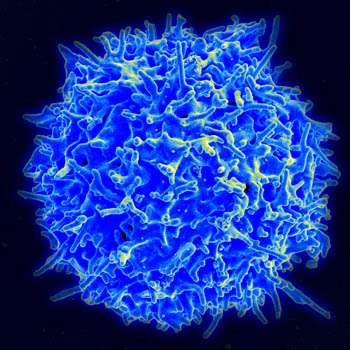This article has been reviewed according to Science X's editorial process and policies. Editors have highlighted the following attributes while ensuring the content's credibility:
fact-checked
peer-reviewed publication
trusted source
proofread
New discovery furthers understanding of how critical immune cells are controlled during an infection

A recent publication from Audrey Gérard's lab looks at how a specific protein, called IFNγ, can coordinate CD8+ T cell responses during a flu infection.
CD8+ T cells are a type of white blood cell responsible for recognizing and destroying cells that have been infected with viruses, as well as some types of cancer. They are controlled by a complex network of immune signals, which ensure that they respond appropriately to threats to avoid harmful attacks on healthy cells.
The researchers observed that the IFNγ protein changes how effectively the T cells are able to recognize and respond to infection. The protein was found to promote the expansion of less effective T cells, allowing them to compete with more highly effective T cells, ensuring a more balanced immune response.
IFNγ was also found to reduce T-cell effectiveness in very early infections, but increase effectiveness in a secondary flu infection. This suggests that exposure to IFNγ forearms CD8+ T cells to be able to better fight subsequent infections.
Moreover, the study, published in Nature Communications, identified a specific subset of T cells called "virtual memory T cells," which produce IFNγ. These cells help regulate the strength and diversity of the immune response, enabling the immune system to effectively fight off infections.
The potential implications these findings have for cancer treatment are considerable, with therapeutic strategies continuing to focus on harnessing the potential of CD8+ T cells to improve cancer treatment outcomes.
Commenting on the findings, Audrey Gérard, one of the lead authors, said, "While this work stems from discovery science, the implications for cancer therapies are important. IFNy is often produced by immune cells in cancer, and we have previously found that it inhibits CD8 T-cell responses in the tumor microenvironment."
"We can now conclude how it does so; by directly limiting the strength of the T cell response against cancer. This could have implications for new therapeutics, where interfering with this mechanism would increase the magnitude and fitness of the effector response."
More information: Lion F. K. Uhl et al, Interferon-γ couples CD8+ T cell avidity and differentiation during infection, Nature Communications (2023). DOI: 10.1038/s41467-023-42455-4



















